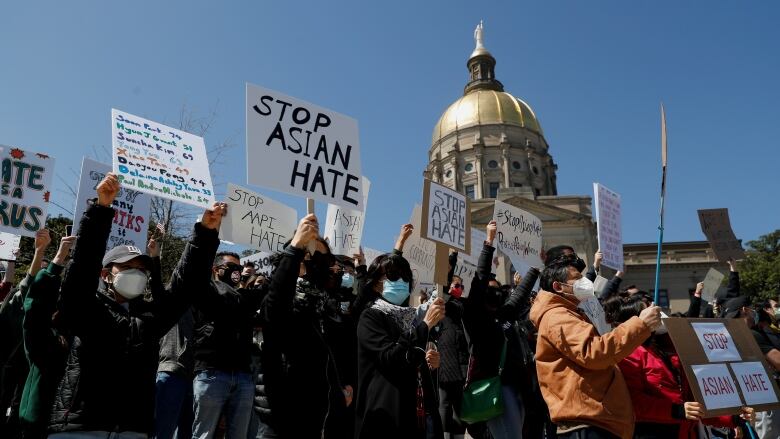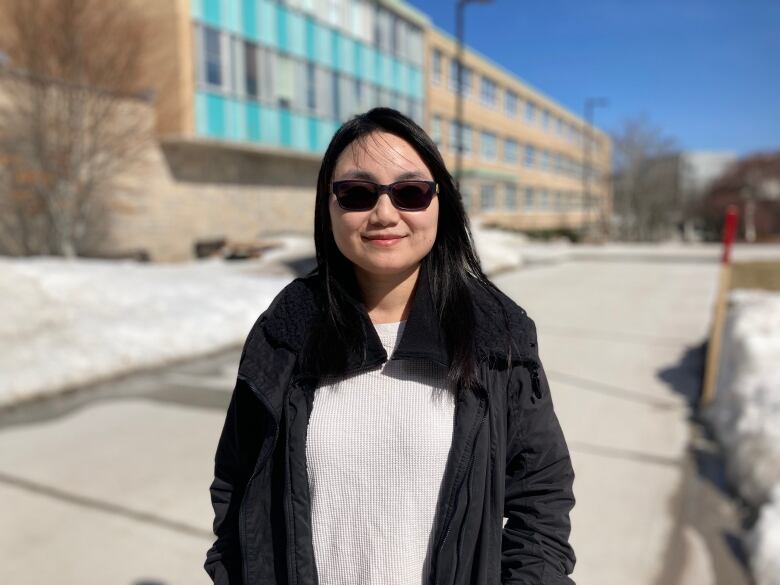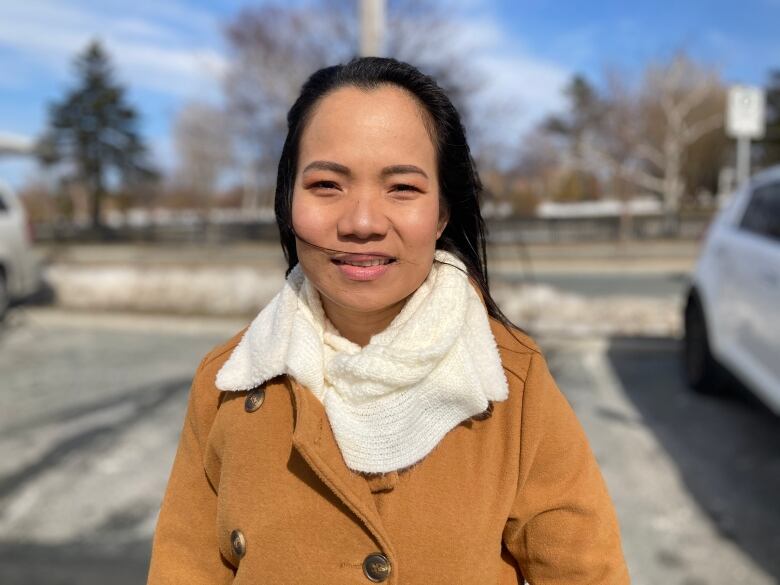'People need to know': These women say anti-Asian racism hasn't spared diaspora in N.L.
Anxiety, grief percolating among Asian community in province after Atlanta shooting

Shock waves from a shooting rampage that killed eight people in the United States last week are reverberating amongmembers of the Asian community in Newfoundland and Labrador, who say anti-Asian sentiment hasn't stopped at the Canadian border.
The mass killing in Atlanta on March 16 targeted three day spas. Six of the eight people slain were women of Asian descent.
Police haven't confirmed the suspect's motivation,but the proportion of Asian victims has renewed fears of violence and discrimination among the Asian diasporain St. John's.
It's "not only an anti-Asian crime, it's a crime against humanity," said Ting-ting Chen, a photographer and PhD student at Memorial University.
The events triggered memories of her own experiences here on Canadian soil. Chen spoke to CBC News last year, when she was targeted by two teenagers, who she says assaulted her with racial slurs during the rise of COVID-19.
It was her third experience of direct, severe discrimination in Newfoundland, and sent Chen into a tailspin of anxiety. For two months, she recalled, she remained indoors, unable to confront the possibility of another attack.
"I was afraid," Chen said, reached by phone Monday. "I dared not to go out for walks. I was in hiding mode."
While the world contends with the coronavirus, the Asian diaspora has additionally been forced to fend off an onslaught of hatred, she said. Even relatively small acts a stranger rolling their eyes, an unfriendly glance, a fellow shopper jumping out of her way to avoid passing her in a store have added up in recent months.
"During a pandemic, it's just a torturing journey for some Asians because of the hatred that happened to them. I can feel them, because I'm also one of the victims," Chen said.

Chunyan Zhu, who works at Memorial University, says Chen's story has repeated itself in various forms among the Asian communities here.
One friend, she said, sought help after her son encountered bullying because of his ethnicity in school. Meanwhile, she's heard from others who felt too nervous to decorate their homes for Chinese New Year. "They were afraid of being targeted," she said.
Incidents like those keep accumulating, Zhu says. After the attack in Atlanta, she felt compelled to speak.
"That horrified me," she said. "I'm not a person who feels comfortable in front of a camera. But at this point, I think I should stand up."

Maria Htee, a power lifter who moved to St. John's 15 years ago, said she was "shocked and scared" at the news of the shooting, but not entirely surprised.
Htee and her family have withstood racial discrimination since they set down roots here. Sometimes it's ignorant comments. Other times, it's outright harassment, she says.
"When I go off for a walk by myself, I get people hassling, [honking] at me, and [making] a comment about my parents," she said. "And it happens every time. And when I talk about that with my friends, sometimes they don't believe me."
Htee wrote publicly about her experiences as an Asian woman,the comments and encounters that she says result from a hypersexualizationof Asian females.
Despite her engagement, It's not a topic she likes to broach in fact, she says, it sickens her.
"You would think that people look at you and think that, 'Oh, she's just a human being, a woman,'" Htee said. Instead, she's often reduced to her skin colour and body parts.
"Sometimes it's really uncomfortable to talk about it," she said. "But I can't just ignore it. I have to talk about it and share with other people, just in case something bad happens. People need to know."
Ting-ting Chen echoes Htee's mindset. She, too, would rather not carry the burden of educatingthe wider public, but doesn't see any other choice.
"I think racism is taught and learned. We should take this chance to promote our mutual understanding and a little respect," she said.
"It is a virus that we should fight against, not a certain group of people who are also the victims."












_(720p).jpg)


 OFFICIAL HD MUSIC VIDEO.jpg)
.jpg)



























































































